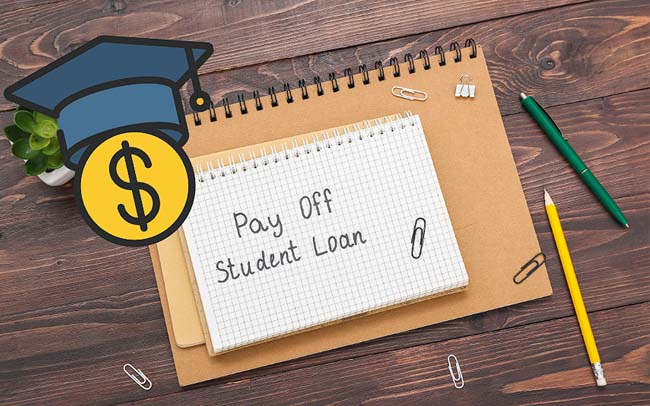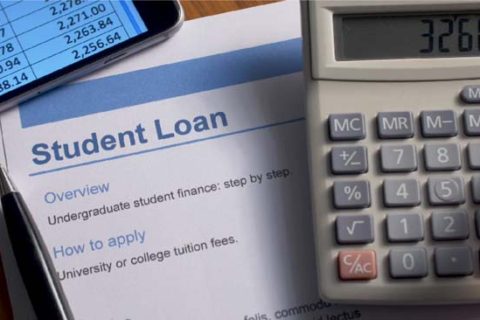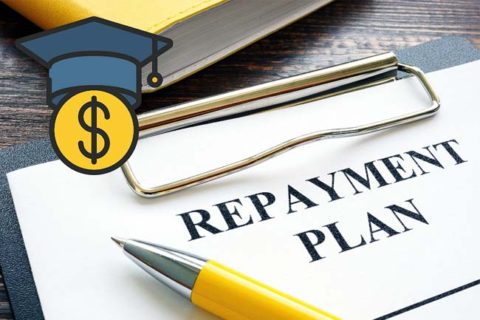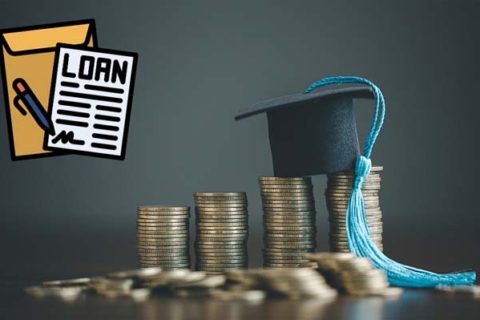When deciding to apply for a student loan at college, you may believe you can pay it. But life is unpredictable. There might be a tough condition, causing you to be unable to pay off the loan even after you work.

If it happens to you, don’t complicate your life. Either with federal or private loans, all your loan issues can be well discussed. So, it’s the best time to take steps to make it easier for you to pay your student loans.
Let’s discover several helpful ways to pay off your student loans!
What is the Best Way to Do It If You Can’t Pay Your Student Loans?
The first thing you can consider is to immediately contact your loan provider instead of letting it continue to pile up. However, your loan servicing company is the best one to start everything.
No matter which student loans you take, either federal, private, or a mix of federal and private, they’ll be welcoming you to discuss your loan payment problems. Make sure to tell them what you’re going through so that you cannot pay off your student loans.
When you’re honest, they may provide you with information about various payment plans so that you can have easier options for making payments each month. Regarding the technicalities, you may be able to choose the easiest one, such as asking them to deduct part of your salary per month.
If you do this, it will surely benefit both parties. After all, the loan providers will earn money if you pay on time and follow the rules. If payments fail, they lose the money you borrowed.
But be careful when doing this. Ensure that you speak with the right people who can really solve your problems. Reportedly, many student loan providers give you misleading information. Instead of getting relief from paying your loan, they actually increase the cost of repaying your student loan.
Surprising fact: In January 2017, the federal government filed a lawsuit against Navient. As the largest U.S. student loan provider, they have 12 million customers who owe $300 billion. However, the lawsuit revealed that Navient made fatal errors in the collection process, costing consumers millions of dollars.
Ways to Pay Off Your Student Loans in Your Difficult Situation
After you’ve tried discussing it with your student loan provider, there might be a few options they give you. Of course, you shouldn’t immediately decide which one. You have to reconsider each option along with its pros and cons.
Ensure that you choose the right option that won’t harm you. Well, some solutions they may provide include:
1. Consolidate your loan
To lower your monthly student loan payment, you can look into consolidation. This method can be chosen if you have multiple loans that you should pay in one month. Sure, it’s very hard, particularly when you’re broke, right?
If you have a federal student loan, you can directly apply for a direct consolidation loan that will combine several loans into one monthly payment. With this, your monthly payments can be lowered with a lower interest rate than before, by at least one percent.
However, you may also need to pay more interest during the consolidation process because your new monthly payment period will be longer, namely up to 30 years. In addition, you may lose certain benefits, such as interest rate discounts and cancellation benefits. So, reconsidering the costs and benefits before taking this option is a must.
2. Change your loan repayment plan
This will be the best way to pay your federal student loan. Most federal student loan providers will allow you to limit your monthly payments to roughly 10% to 20% of your discretionary income.
There are a few repayment plans that federal loans offer to you, such as:
-
Income-driven repayment plans
This loan repayment option will be based on your income, and you can qualify for the following options:
-
- Pay as You Earn Repayment Plan (PAYE)
- The Revised Pay as You Earn Repayment Plan (REPAYE)
- Income-based Repayment Plan (IBR)
- Income-Contingent Repayment Plan (ICR)
The first three lists use 10 percent of your discretionary income, and the last one uses 20 percent of your discretionary income.
-
Standard, graduated and extended repayment plans
Each repayment plan has its own term period.
-
- A standard repayment plan has repayment terms of up to 10 years for individual loans or up to 30 years for consolidated loans. And it has a fixed payment per month.
- A graduated repayment plan starts your payment with a lower amount, which gradually becomes higher. For payment terms, this plan is the same as the standard repayment plan.
- An extended payment plan gives you two options: either your payment can be fixed or graduated. For payment terms, it can be up to 25 years.
Of course, you can make big changes in your life just by changing your loan repayment plan. You can also change your payment due date if it coincides with another large payment.
But it is important to note that repayment plans can vary depending on the loan you choose. And, of course, each has specific guidance. You can learn more through the U.S. Department of Education website.
4. Look into deferment
If you really cannot pay your student loan due to economic hardship or difficulty finding a job, you can try to make a payment deferral request.
If you qualify for deferment, you can defer your federal loans for up to three years. But if you don’t, you may be eligible for forbearance, where you can reduce your payments for up to 12 months.
Before a deferment or forbearance request is approved, you must continue making payments on your loan. You’re also responsible for paying interest arising from all types of federal student loans during forbearance.
For certain types of loans during the deferment period, you are not required to pay the interest accrued on the loan.
5. Cut back on your expenses
Cutting your expenses isn’t easy, but making temporary sacrifices for long-term gains isn’t a bad thing, right?
If you are used to behaving consumptively, spending money without thinking, start changing it now. If not, you won’t be able to pay off your student loans forever. Some changes you can try include:
-
- Home food for lunch at the office.
- Switch your cafe latte to homemade coffee.
- Get used to using public transportation or walking.
- Get your roommate to share utility or food costs.
- Consider living with your parents for a while until you can pay off your student loans.
- Reduce some unnecessary expenditures, such as internet and cell phone bills, grocery bills, car insurance, streaming services, entertainment, dining out, etc.
Of course, it will be difficult for you to carry out this habit, but the impact will not be as big as if you fail to pay the loan.
6. Increase your income
The best way, but not the easiest, is to increase your income. However, that doesn’t mean you can’t. If you are working at a company with a low salary, you can improve your performance and think about negotiating for a raise in your salary. If it is impossible, you can take a side job.
Well, you can try taking a part-time job such as being a cafe waitress, dog trainer, tutor, pizza delivery person, or babysitting. If you have writing skills, you can try becoming a freelance writer.
To make your money well manageable, you can separate your income from your regular job and side jobs. So, open a new bank account for your new source of income.
Besides being able to reduce your student loans, you can also have more savings for travel or entertainment.
7. Consider loan forgiveness
We must say that this is a final solution for those of you who really cannot pay off your student loans until whenever. In fact, the federal government provides loan forgiveness and repayment programs. But not all student loan borrowers qualify for them.
Most of these programs have specific eligibility requirements, including the following:
-
- Currently working in public service at a non-profit or government agency, such as becoming a teacher, civil servant, and more.
- Become a member of the United States Armed Forces.
- Total and permanent disability.
- Get a false certificate due to a crime or identity theft.
- Deceived by educational institutions.
- Closure of college before completion of studies.
You may qualify to apply for a loan forgiveness program, but you should notice that you will be competing with millions of eligible people to get it. Reportedly, many people have spent 20–25 years trying to get this program but were rejected. But you can try it; hopefully it works.
Okay, those are some ways you can easily pay off your student loans. Of course, there will be other best solutions that may come before you. So, don’t miss it, okay?
It’s important to note that having your entire student loan written off due to bankruptcy is extremely rare. So, do what you can. If you don’t get it, don’t be disappointed since it all depends on your student loan provider.
Things to Know About Student Loan Payment
Your payment due date is the most important thing you need to know when starting to pay off student loans. When your student loan grace period ends, repayment will begin, which is usually six months after you graduate or leave school.
When you apply for federal student loans and are approved, you will work through a student loan servicer that you will pay directly. Well, the private loan providers will probably pay the loans themselves or contract services with private companies.
Just like other bills, you can pay your student loan online or by checking manually. Typically, many borrowers sign up for automatic payments because they receive an interest rate discount of a quarter of a percentage point upon registration.
If you choose automatic payments, the service provider will debit the monthly payment from your checking account automatically, so make sure you have enough money in your checking account each month to avoid overdraft fees.
With this payment method, you will avoid delays in payments due to forgetting or accidentally missing out.

A bookworm and researcher especially related to law and citizenship education. I spend time every day in front of the internet and the campus library.


